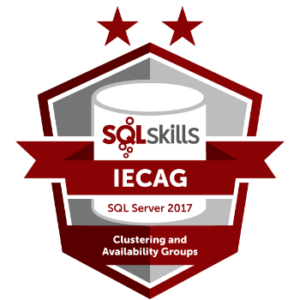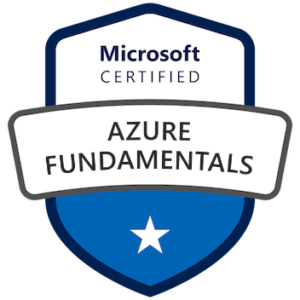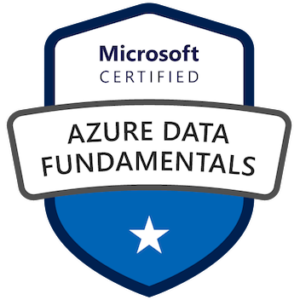How Do I Measure My DBA Skills Part 5
Development DBA
We’ve been on a journey recently in this series as we discuss measuring your DBA skills. Previous posts have been intriguing to you. You like where this is going and yet, your skills are different from what we’ve been discussing in this initial part of the series.
Maybe you are a Developer who works with databases and you find SQL Server very interesting. You build some tables and write some queries as part of your work and you really like doing it. You like trying to figure out how to make your initial draft query for your project run faster. You have conversations about this with other Developers or maybe even a DBA or two at your company. What you hear resonates with you and deepens the interest in SQL Server. You wonder, “Is there a place for me in the SQL Server world? What would I do if I did a career pivot to work with SQL Server almost exclusively?” Enter the Development Database Administrator.
What Does a Development DBA Do?
Before we jump into a discussion of skills, we need to try to answer the question, “What does a Development DBA do?” After all, if you think you’re interested in this, what are you signing up for?
A Development DBA will often be responsible for the management of the non-prod SQL Servers, SQL development work for applications and processes, task automation and perhaps source control and the change deployment process. Non-prod SQL environments need care and maintenance. The Dev DBA role can assume this responsibility. This isn’t because the Dev DBA is a “Junior” role, but because this non-prod environment plays the critical role of testing grounds for development work. This non-prod environment will be where the Dev DBA works and experiments with new SQL Server development such as stored procedures, SSIS work SQL Agent job development etc.
This work will often be done in tandem with Developers from other areas of the company to produce new products and applications. The Dev DBA spends most of their time in non-prod so there is familiarity and as a result it makes sense to have the Dev DBA manage the environment.
Related to the experimental nature of the work, and the need to promote that work to production, the Dev DBA will often participate in or wholly manage source control and change processes such as source control software and the design of the process of promoting code through the various developmental levels of the environment. Once deployments are tested, scripts are then often handed off to Production DBAs for deployment of new code in production, but even this could be automated by the Dev DBA with control over when the deployment happens being wielded by the Production DBA.
At higher levels, the Dev DBA role may begin to overlap some with the Production DBA role and skillset. Let’s dive into the skills of a Development DBA.
The Development DBA Role
DEV DBA – 0 to 2 Years Experience
- Design tables utilizing basic normalization techniques.
- Basic T-SQL development. SELECT, INSERT, UPDATE, DELETE. Stored procedure development with guidance from more experienced DBAs.
- Manages most administrative aspects of non-prod environments with assistance from more experienced DBAs, including the application of patches to pre-production.
- May participate in pre-prod testing of SQL code prior to production upgrades or migrations.
- May have some exposure to SSIS, SSAS or SSRS.
- Demonstrates understanding of basic backup/restore processes.
- Demonstrates values driven behaviors such as humility, integrity, teamwork and is teachable.
T-SQL Skills
Now that you’ve looked over the list, let’s talk about it. T-SQL skills and overall development skills are at the heart of this role. The Dev DBA will spending a lot of time manipulating data and the first and foundational way that will happen will be with the core skills of SELECT, INSERT, UPDATE and DELETE. Introductory and basic T-SQL skills will be learned, practiced and built upon as you spend time in this role. A corollary to that will be learning all about the relational database table. At this phase of the career the Dev DBA will be learning what a good relational table should look like. Even if you can’t quote them, the principles of first, second and third normal form will become familiar as you design more and more tables.
Stored procedure development will be learned in this part of your career. You’ll be exposed to what a stored procedure is, why it should be used, advantages to it, the basic form of a stored procedure and so on. Of course, you’ll begin to write some of your own stored procedures as well. After all, there’s no point in learning about them, but not actually writing them!
Database Security
In this phase of your career you maybe be asked to make some logins and users as part of your development work. You’ll need to learn what those database objects are, how they are different and how they work together to provide authentication and permissions. You will, I hope, be doing this with the help of other DBAs who have walked this path before you so that you’re not scratching and clawing to figure it out on your own. My point is, other people will be guiding your work at this phase.
You will be testing code, a lot. After all, in this role you are creating things in non-prod that have to be reliable. You will be making sure that result sets make sense.
Depending upon the technologies in use at your company, you may be exposed to things beyond the T-SQL and basic security that we’ve already mentioned. SQL Server Integration Services (SSIS) may be important at your work, and as a result, you will need to have some basic understanding of it. Maybe your employer has invested heavily in SQL Server Reporting Services (SSRS). In which case, you will be exposed to report development and deployment.
What Happens When I Lose Some Data?!
At this point in your career, you probably aren’t taking backups or restoring backups. But you should begin learning backup and restore concepts. You’re going to need that understanding as your career grows. Trust me!
You are going to make a mistake in a non-prod environment and wipe out a small, or large, amount of data. Please accept that this is going to happen. You’re going to make a mistake. You’re going to freak out and think, “I’m going to be fired!” I hope that you won’t be fired over it, especially since you’re not working in production. If you introduce me to a person who says that they’ve never messed up or lost any data, I will have met either a liar or a person who hasn’t worked with data nearly long enough!
When this happens, and it will happen, relax, and ask for help. If the other people on the DBA team have done their first and most important job, you’ll be able to get the data back. If they haven’t done their first and most important job, then maybe they are the ones who should be worried!
Do I Really Need People Skills?
Just like the other posts in the series, the last thing on the list is about people skills. Yes, you’re going to need them. You have to interact with other people on your team, people on other teams and maybe even external customers. You need to be teachable, develop good listening skills and be willing to help other people. All of these things will help you lean your craft. You need the other people around you because they know things and have experience that you need. Remember that example above where you’ve deleted data you need to get back? If you don’t work on your people skills and have good relationships with co-workers, then that conversation where you have to ask for help is going to be reeeaaallllly awkward!
Particularly at this level of your career, other people can help you avoid pitfalls in your code as well as help you get your next promotion. So, be humble and willing to ask questions. When someone answers your question, don’t argue. If you don’t like the answer or you think the person is wrong, ask more questions to get clarification. Say something like, “I’m not sure I follow. Can you try explaining that another way?” Or you might say, “I hear what you’re saying. Would there be anything wrong with doing it like ‘X’? Is there a reason that wouldn’t work?”
Next Steps To Take
- Copy/paste the skills list into a Word doc and place an “X” next to anything you need to work on.
- Pick two or three things to focus on and build yourself a training plan. Put that training plan somewhere that you will see it every day.
- Ask a person on your team how to do a task that is important in your environment, but that you don’t know anything about yet.
- Talk to me. Contact me here if you would like specific help with anything in this post or other things related to SQL Server. If there is an issue with the form, you can reach me at [email protected]. I will be glad to help.





[…] the last post, we began talking about the Development DBA and the skills needed at the beginning of this career […]